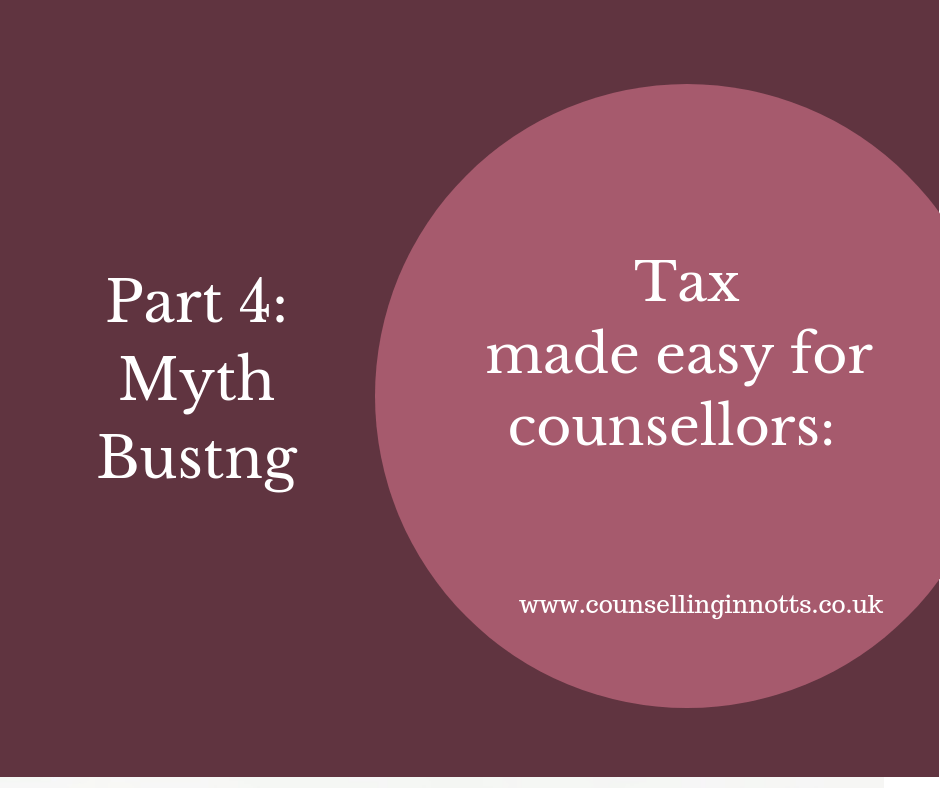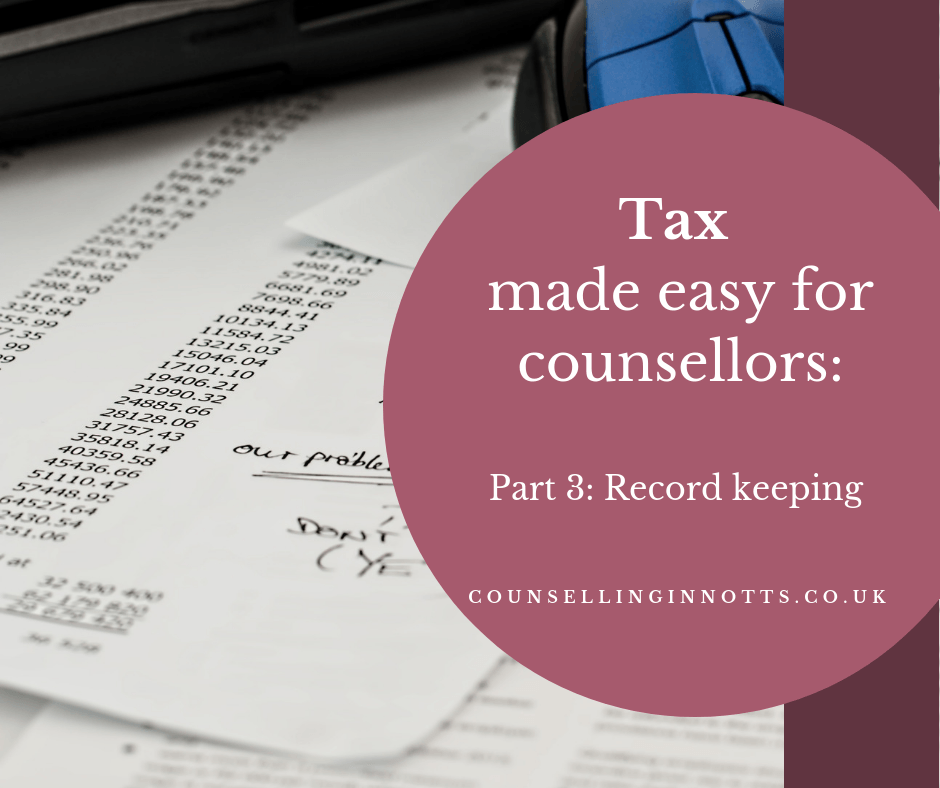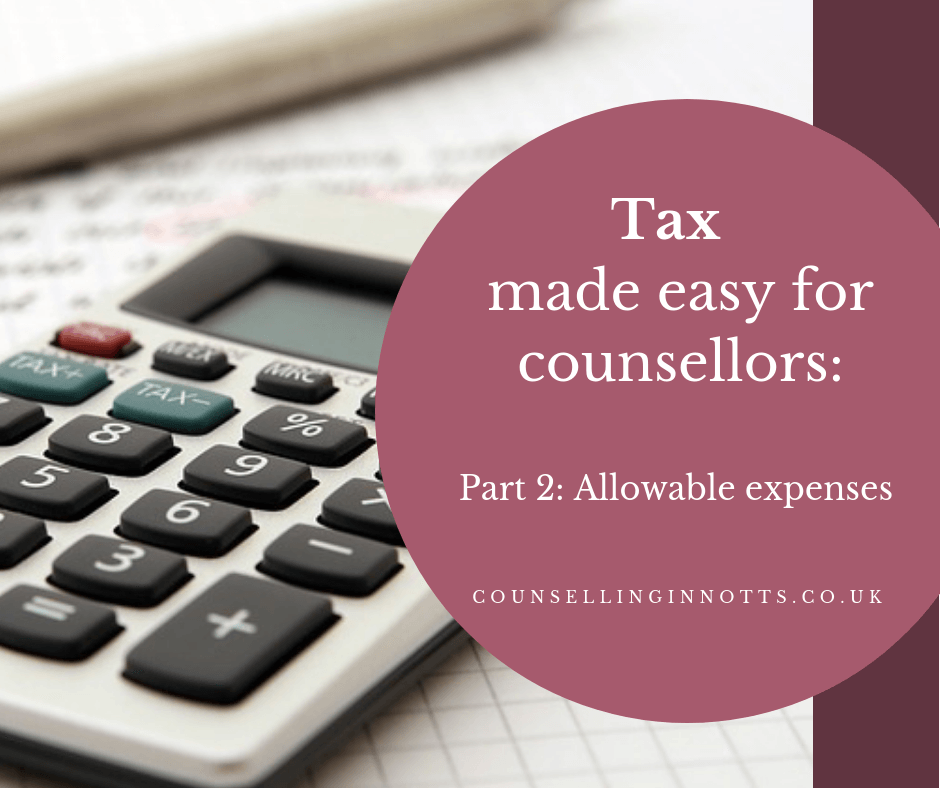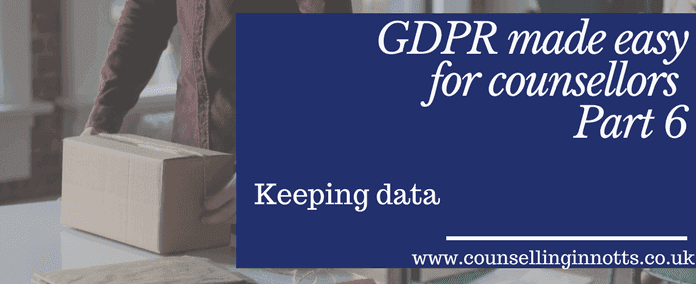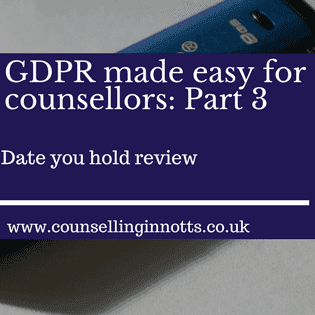Tax made easy for Counsellors
- By Karen Emery
- •
- 17 Jan, 2019
- •
Tax basics getting started
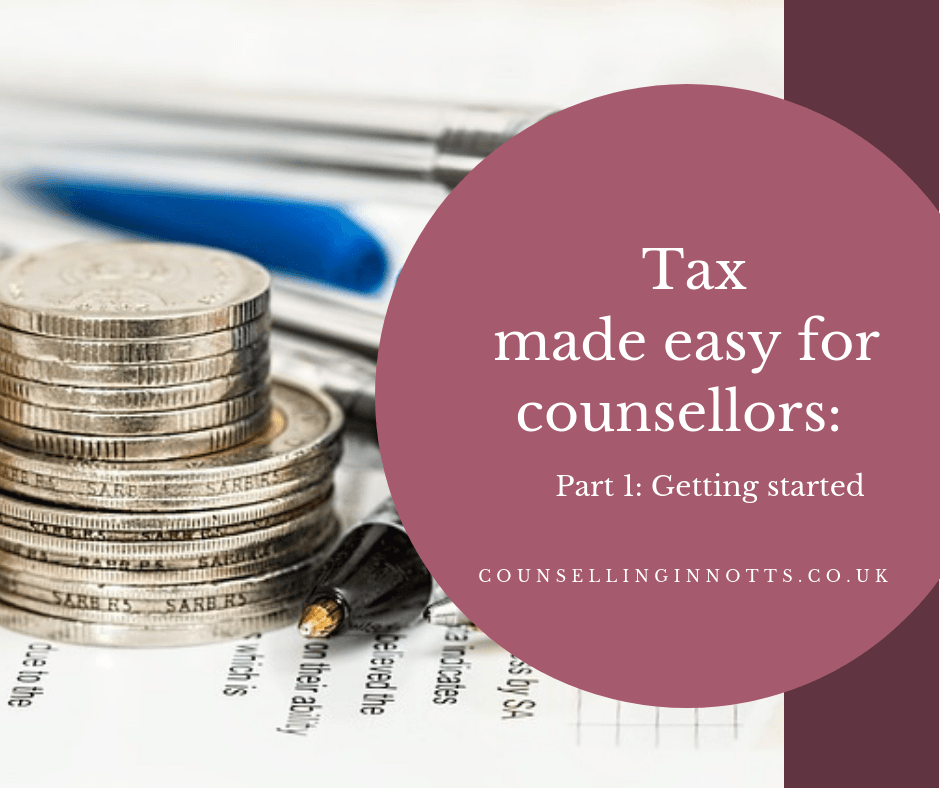
There really is great information and free webinars on HMRC website but I know for some tax and HMRC just send you into a state of panic. So deep breath you can do this.
Let’s be honest from the start. If numbers and calculations are just a not your thing, admin and records are not your strength and your brain just wasn’t designed for tax. Then quite frankly save yourself the stress and go and ring an accountant. Why make life hard?
Getting started: The tax basics
HMRC = Her Majesty’s Revenue and Customs.
· aka the tax man
· aka tax office
If you remember nothing else. Rules to pin to your kitchen wall
· Rule 1.Keep all your receipts.
· Rule 2. Never, I repeat never lie to the tax office.
Tax year and filing a tax return
The tax year runs 6th April to 5th April.
*The bit when you start that makes no sense. You file your tax return the year after you earn the money. I simply remember the tax year has to end before I can owe any tax.
So if you started private practice this tax year 2018-2019. You don’t need to file your tax return until 31st January 2020. Handily the tax office emails to tell you when can start doing it.
So panic over for some for 31st January this year.
| The year you spend and earn money. |
April 2018 – April 2019 |
| The latest date to register your business for tax yr 2018-2019 |
5th October 2019 |
| Paperwork tax return deadline |
31st October 2019 |
| Online tax return deadline |
31st January 2020 |
| Penalty charge for late returns £100. Note: all partners in a partnership can be charged a penalty fee. |
Personal tax allowance
2018: £11.850.
(2019 £12,500) This means you can earn
this much before you have to pay tax. You will need to complete a tax return to
prove to the tax office how much you earned.
Income and profit.
Gross Income: the amount of money that goes into your bank before any allowances or expenses.
Allowable expenses: something used wholey and exclusively for your business. *Top tip get your head round these( we’ll be looking allowable expenses)
Profit: Income - allowable expenses = profit
Profit is what you pay tax on. So the more you get your head round allowable expenses the less money there is for the tax office to take a look at.
Trading allowance
If your gross income is less than £1000 there’s the option not to complete a tax return.
Why? I would imagine the tax office got fed up getting calls for help from people who’ve made just a couple of quid. Just 25 sessions at £40 over a year would be £1000 though.
It’s worth though getting use to keeping your records and all your set up costs are allowable expenses. So it’s worth doing a return to log you losses. Why? You can keep your losses on record and take them off future tax returns. https://www.gov.uk/guidance/tax-free-allowances-on-property-and-trading-income
How much is the tax rate?
· Basic rate of tax : 20% up to £46,350 (2018-2019)
· Higher rate you pay 40% from £46,351(2018 -2019) (we live in hope to earn this )
National insurance
Class 2. If your profit is less than £6025 you can voluntarily choose to pay class 2 NIC (2018-2019)
Class 2 is £2.95 a week (2018-2019) this helps you qualify for full state pension and some benefits.
https://www.gov.uk/self-employed-national-insurance-rates
Class 4 payable when your profit is over £8,424 you pay 9% (2018-2019)
**Notice this says PROFIT, that’s income – allowances.
If you’re not sure if you have enough NI payments for state pension you can check how many full years you have. https://www.gov.uk/check-national-insurance-record
VAT
You only have to register for VAT if you’re turnover is more than £85,000 (Again we seriously live in hope)
Sole trader or limited company?
In my opinion starting out, make your life easy. Sole or as I always end up typing soul trader is the simplest. No registering at company house, no extra things to do. Once you’re making loads you can always upgrade to limited.
Do I need to keep records?
Yes, how else do you prove how much money you’ve made and how much money you spent?
*The bit that makes no sense when you start. You don’t have to send you paperwork records in with your tax return. Why? You simply input the final figures. And remember that rule 2. The tax office will assume you haven’t lied to them. https://www.gov.uk/self-employed-records/what-records-to-keep
You will need your records if the tax office decide to audit you. (We’ll be looking at record keeping)
Do I need a business account?
A separate account is recommended, but it doesn’t seem to need to be a business account. (Do check the terms and conditions of any account you open as not all accounts can be used for business) If you use a business account with a monthly fee. **that’s a tax allowable expense.
Registering for tax
You register and basically get an account to then sign into complete tax returns.
*Top Tip during the process make a record of all the access/security numbers given. There are a couple and they don’t repeat them. It truly is a bit like, this number will self destruct in 5 minutes. Once done you just have 1 sign in number. KEEP IT SAFE https://www.gov.uk/set-up-sole-trader
It will ask what date you set up your business. Don’t put the date you complete the form put the 2nd day of the tax year. Why? So that once you’ve got your head round allowable expenses you can claim everything you spent money on, that you don’t yet know you can claim. (Stick with me all will become clear)
So hopefully that’s not confused your brains and some of it makes sense now. See you next week for allowable expenses.
I’m not an accountant, I’m a counsellor with a sensible approach whose read and understood the HMRC information. This blog doesn’t constitute financial advice.
HMRC says: Even if you ask someone else (your accountant or tax adviser or perhaps a friend or relation) to complete your return for you, you remain responsible for the entries on the form
